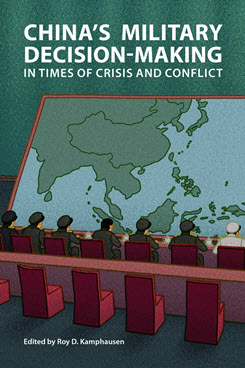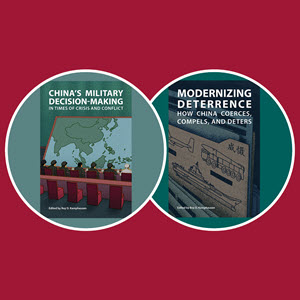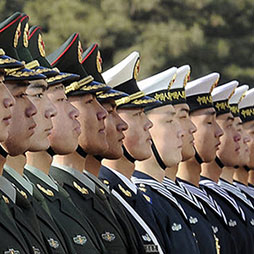China’s Decision-making and the Border Dispute with India
This chapter examines China’s decision-making process regarding the border conflict with India and considers the outlook for the bilateral relationship.
EXECUTIVE SUMMARY
MAIN ARGUMENT
The China-India boundary dispute is significant in Xi Jinping’s decision-making calculus. The politico-military apparatus in China perceives India in increasingly antagonistic terms and chooses to create periodic tensions with India on the boundary dispute. This will continue to be the case in Xi’s third term, especially as the centennial goal of building a modern military by 2027 steadily approaches. At the same time, the China-India border dispute must be seen as a corollary of the wider geopolitics at play. In particular, Beijing’s decision-making is effectively controlled by the belief that India’s foreign policy choices vis-à-vis China are influenced by the U.S. and that India depends on the U.S. to counter China’s expanding regional dominance. In addition, as China’s modernization of its defense forces continues, the border dispute with India is playing a key role in decision-making about the requirements for engaging in and defending other contested regional theaters, such as the Taiwan Strait and the South China Sea. Finally, it is important to recognize that China views India concurrently through multiple lenses beyond merely their bilateral differences in the boundary dispute.
POLICY IMPLICATIONS
- Given the larger geopolitical dynamics at play, China and India are unlikely to resolve their border disputes because of what Beijing sees as New Delhi’s backtracking on a tacit consensus of the post-1993 (and 1996) deal that favored strategic cooperation.
- There is widespread consensus in China that a rising, nationalistic, and assertive India is a key component of the regional (if not global) security architecture. At the same time, China is concerned about the growing collaboration among regional Indo-Pacific countries.
- Beijing appears to be increasing its efforts (as part of its global strategy) to encourage tactical cooperation with India in the economic and multilateral spheres, while simultaneously employing intimidation tactics (psychological and military) to prevent India from coalescing with the Western-led security architecture and, ultimately, to emphasize its overall superiority. There is little chance of a shift in strategy in the near future.
Jagannath Panda is the Head of the Stockholm Center for South Asian and Indo-Pacific Affairs at the Institute for Security and Development Policy in Sweden and a Senior Fellow at The Hague Centre for Strategic Studies in the Netherlands.



 Assessing U.S.-China Deterrence Dynamics and Crisis Management
Assessing U.S.-China Deterrence Dynamics and Crisis Management
